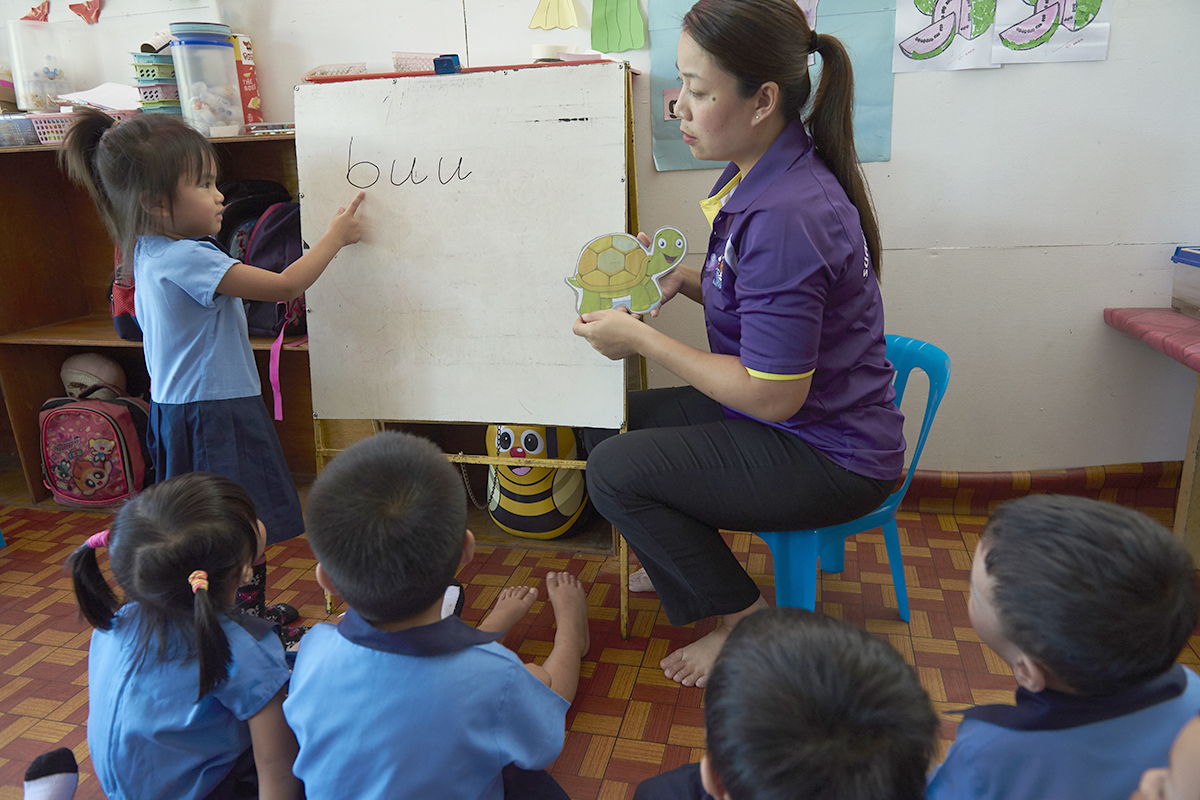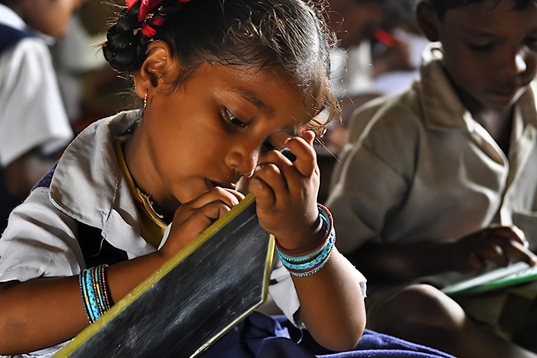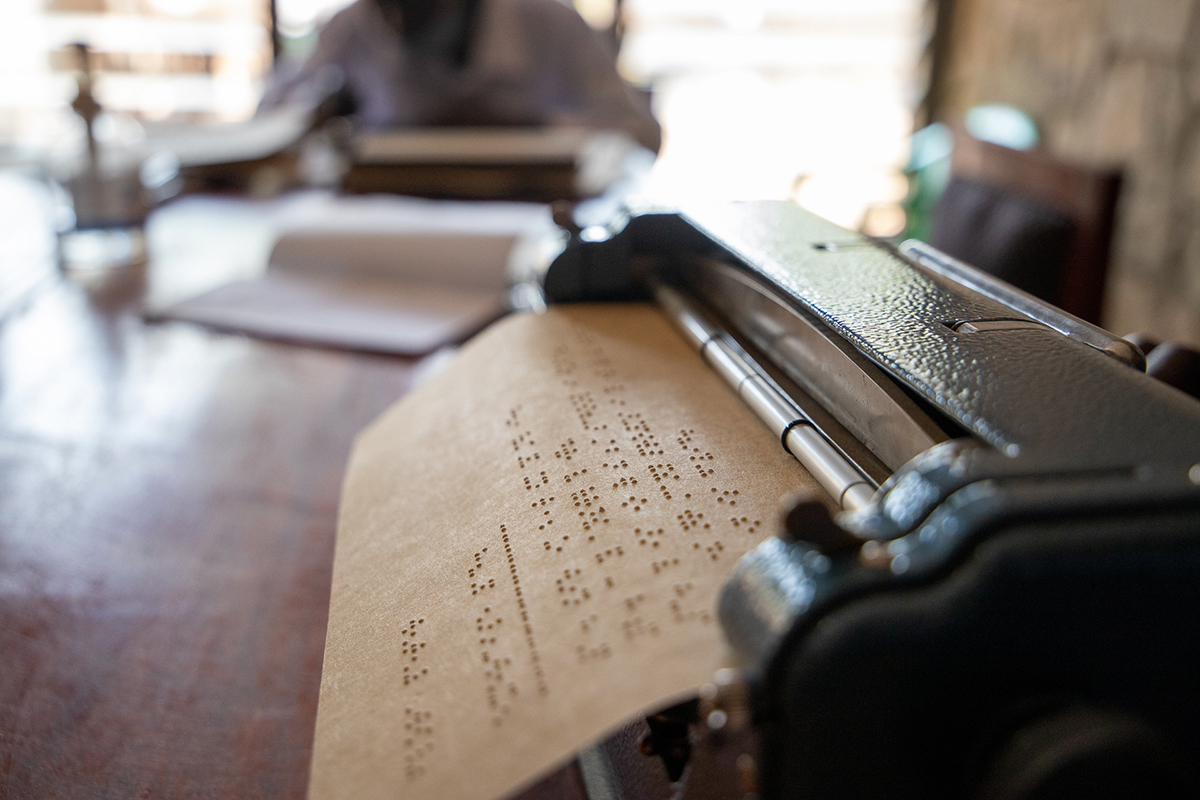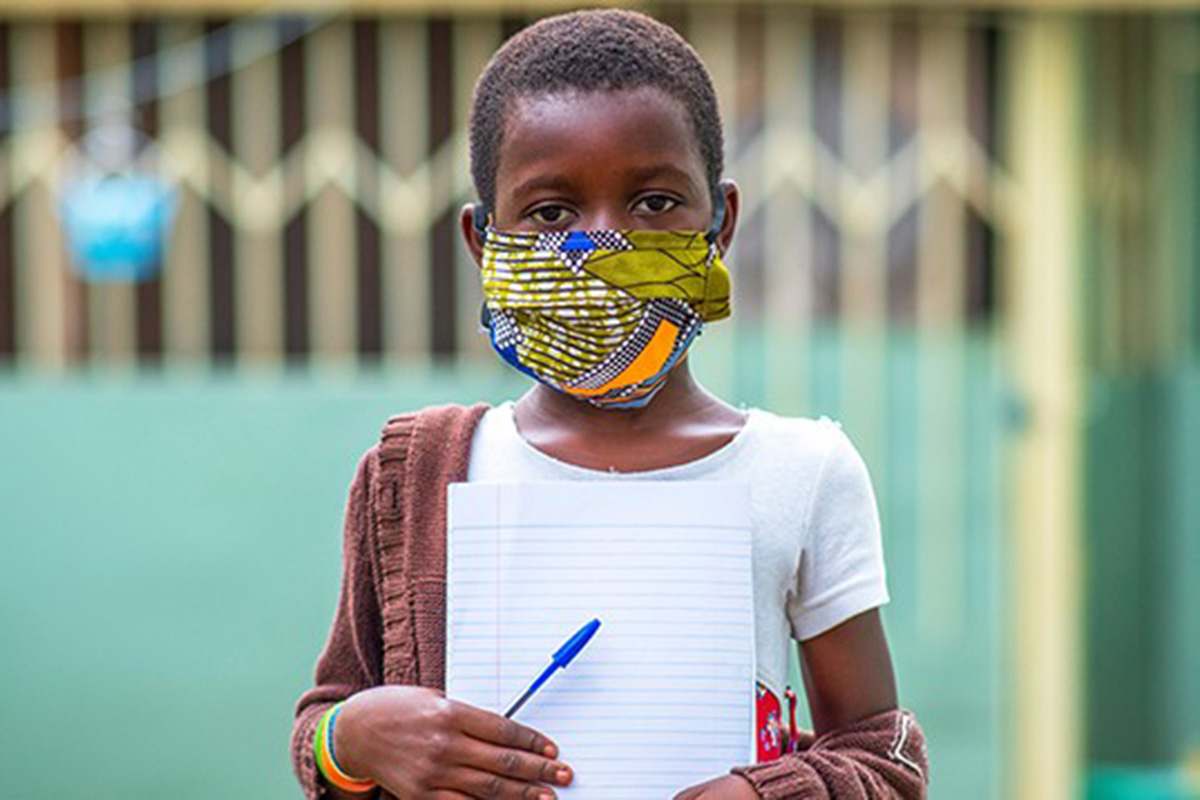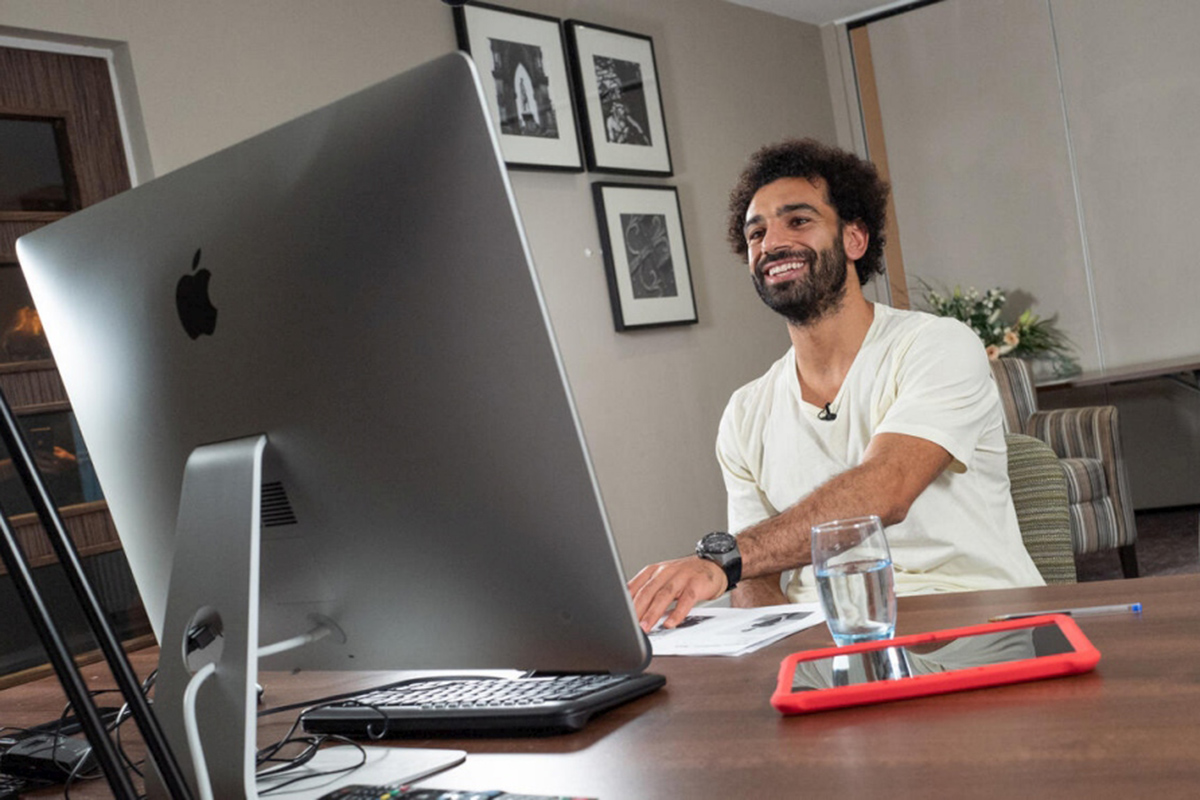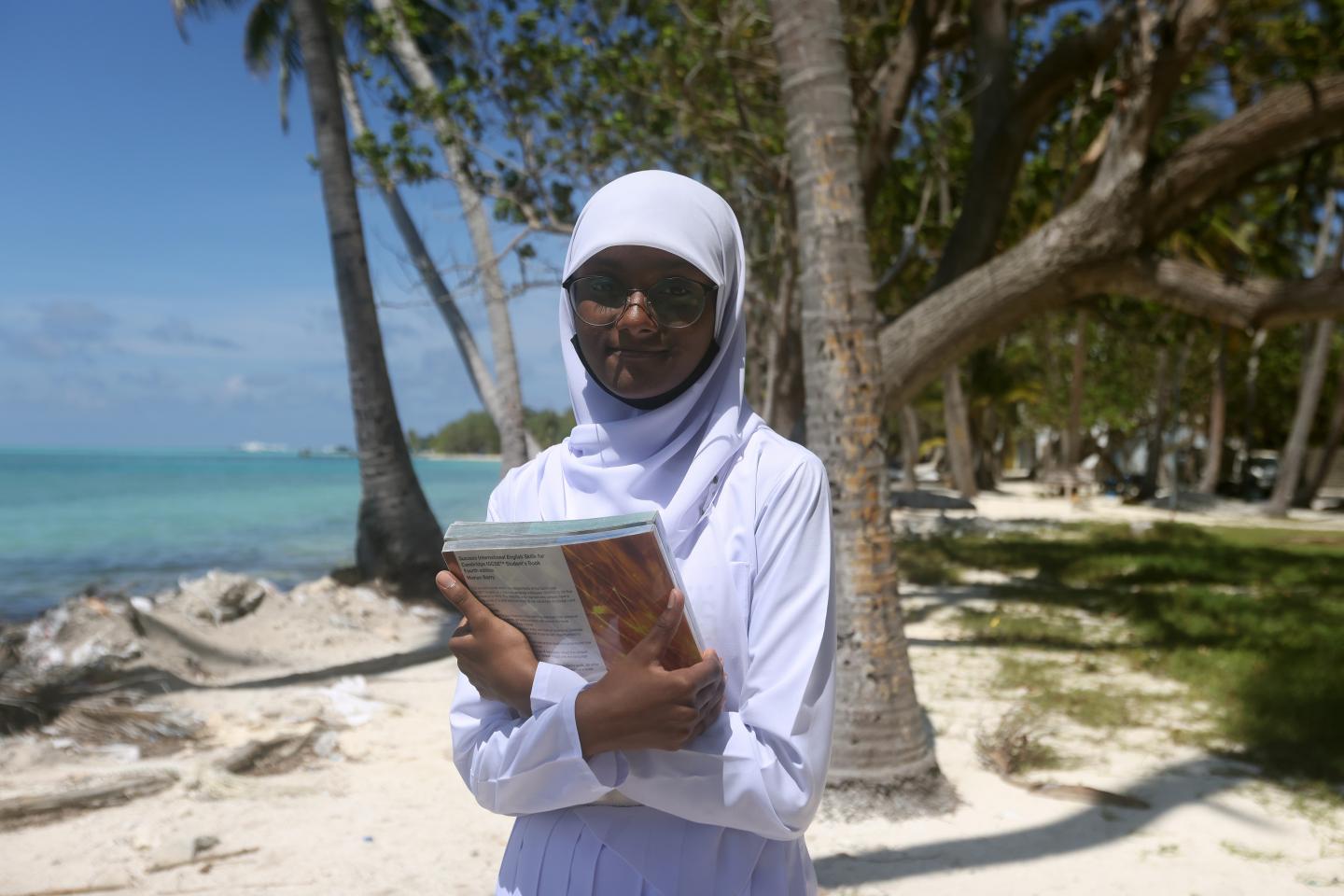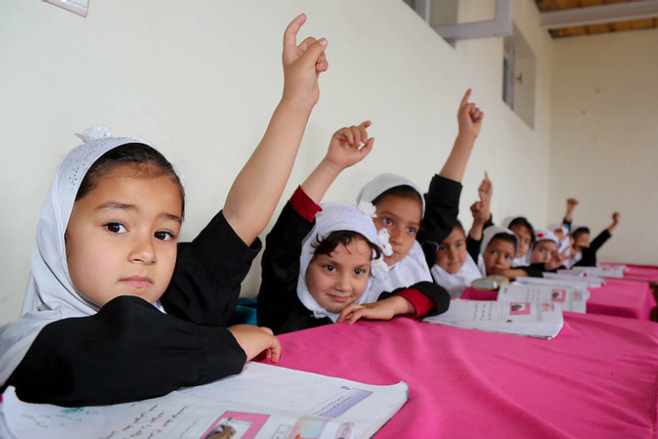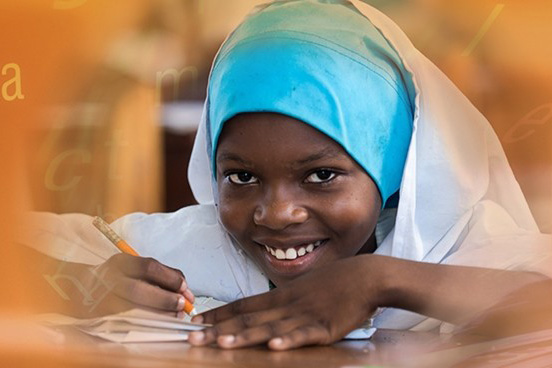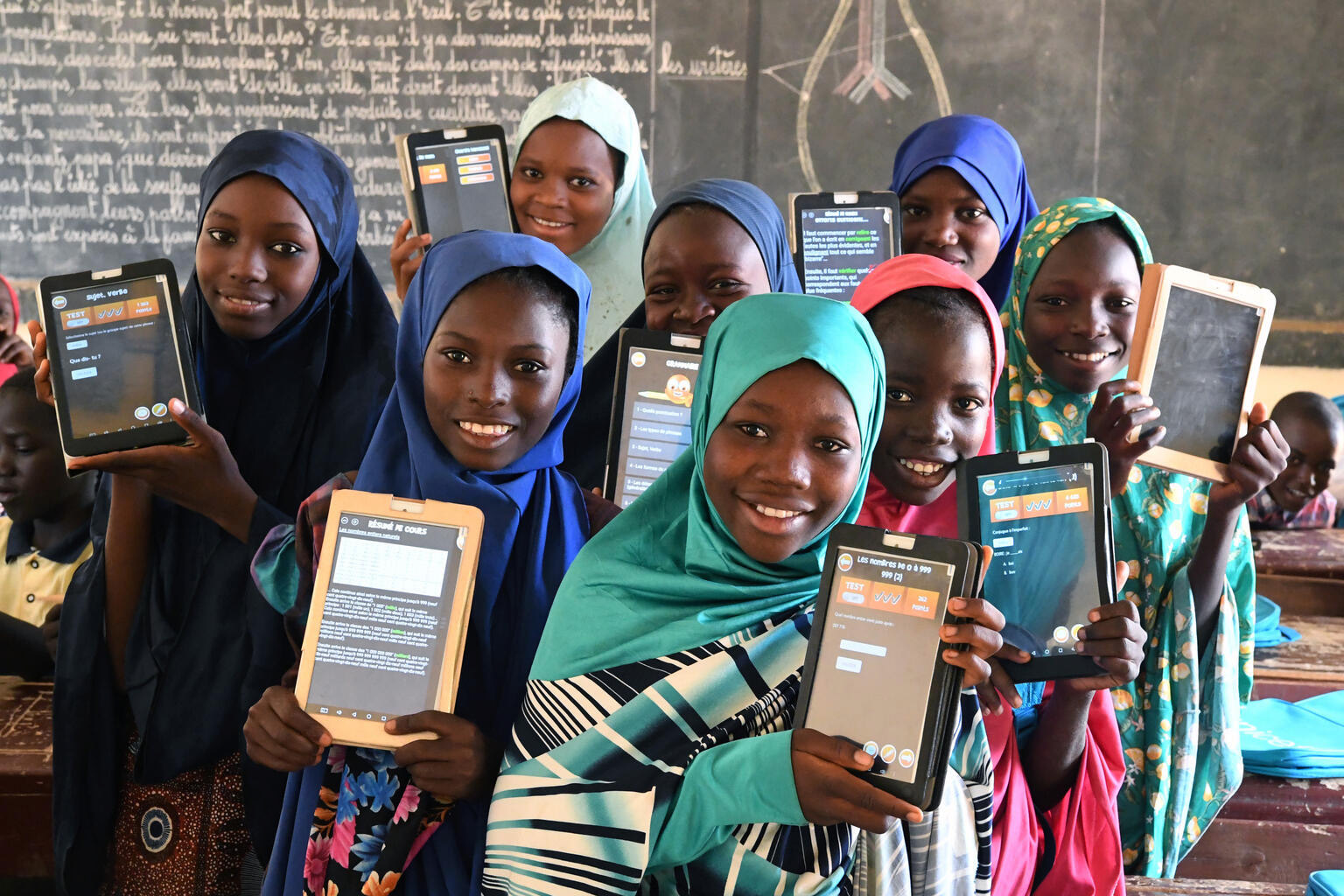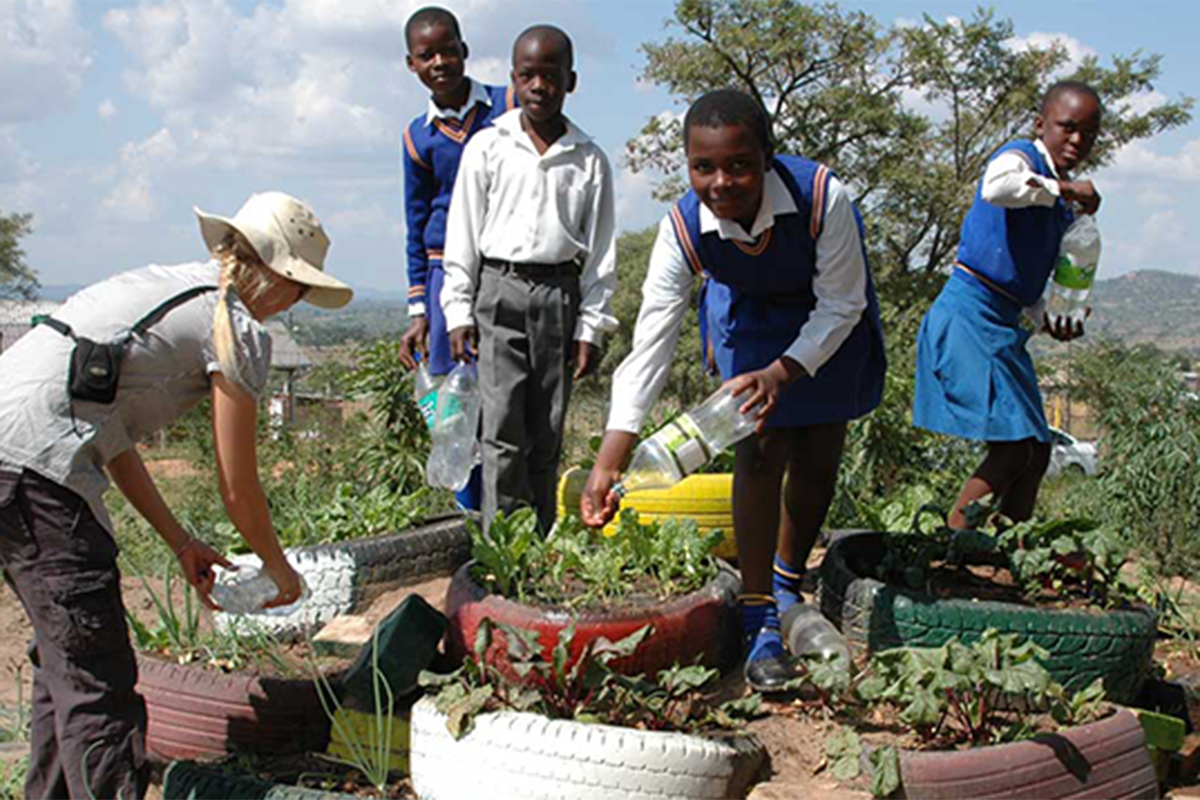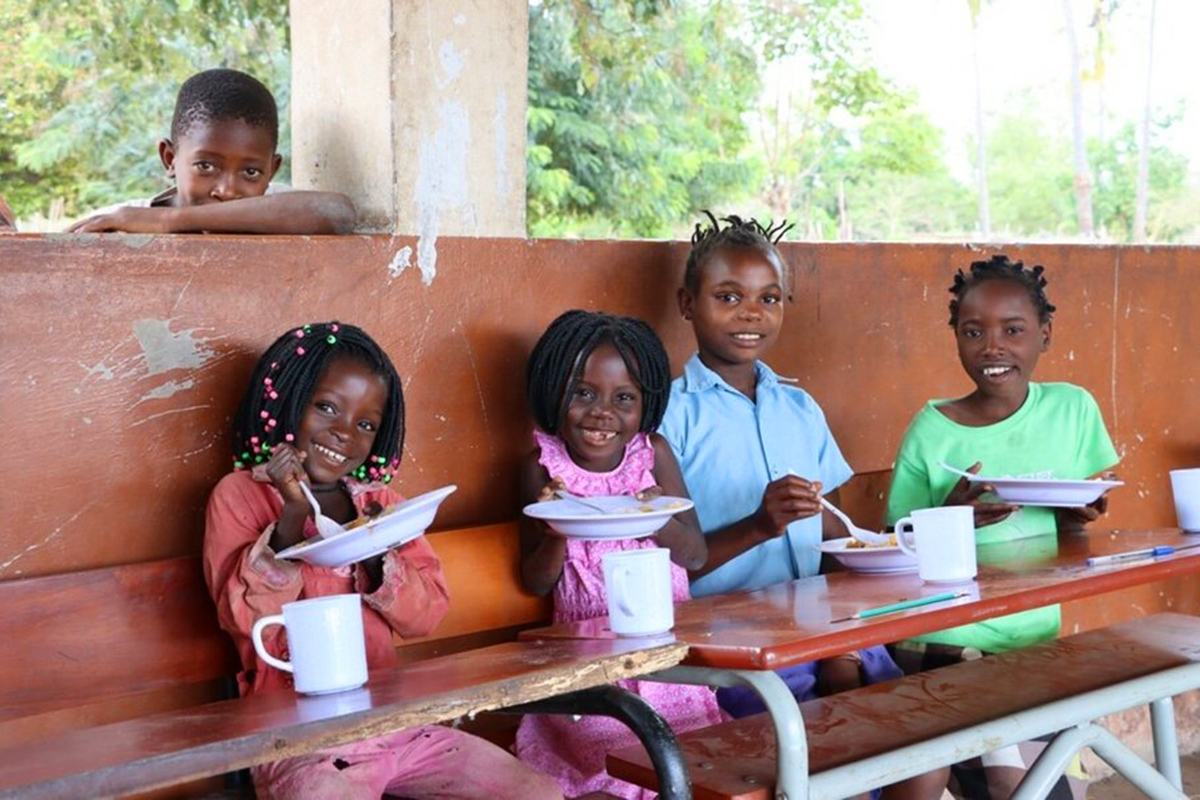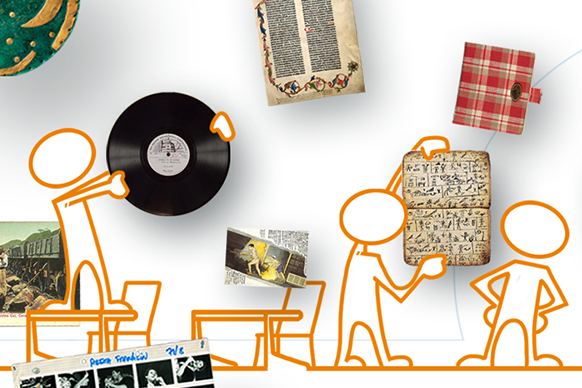Hallilah Nakumai’s family always put education first. In a rare opportunity for a young woman from her village, Hallilah attended boarding school and then a bachelor’s degree on Sustainable Tropical Agriculture. She took away invaluable agricultural expertise, diving deep into plant and animal breeding, biotechnology, agribusiness and entrepreneurship. All this proved its value as she returned to her village. She soon sought and received the support of the FAO-implemented programme to streamline and upgrade the agrifood production of her community in Papua New Guinea.
Éducation
International Mother Language Day recognizes that languages and multilingualism can advance inclusion, and the Sustainable Development Goals’ focus on leaving no one behind. The year’s theme, “Using technology for multilingual learning: Challenges and opportunities,” raises the potential role of technology to advance multilingual education and support the development of quality teaching and learning for all. Technology can accelerate efforts towards ensuring equitable and inclusive lifelong learning opportunities for all, when guided by inclusion and equity.
Based on lessons from the past two years, the majority of countries affected by the highly contagious variant of Omicron are succeeding in keeping schools open with reinforced health and safety protocols. But the continued disruption to education requires bolder measures to recover learning losses. According to new data released by UNESCO, schools are currently open in most countries of the world (135). In a small number of countries (25), schooling has been temporarily suspended by extending the end-of-year break. Only a dozen countries have opted to close schools and pivot to fully remote rather than in-person learning since the outbreak of the Omicron variant.
In Tutin, one of the poorest and least developed municipalities in Serbia, children with developmental or behavioural disorders cannot fully enjoy their childhood and develop their potential because of the lack of a suitable environment in the preschool educational system. “The main reason behind this is the lack of financial means and professional staff,“ says Mila Hadzic, a defectologist and speech therapist. To remedy this situation, UNDP Serbia, in partnership with the Municipality of Tutin, is supporting the Kindergarten launch and equipping a sensory room through a crowdfunding campaign.
Sitting around a conference room table in South Sudan’s capital, Juba, Julius Onisente uses a stylus to emboss dots that form patterns to make a sentence. Julius is one of 20 people who attended a three-week Grade II Braille training organized by IOM to help participants build on existing braille reading and writing skills. The protracted civil war in the country has left many people vulnerable, especially those with disabilities. Such training is in high demand across South Sudan so IOM and partners continue to work towards extending similar trainings beyond the capital.
This generation of students now risks losing $17 trillion in lifetime earnings, or about 14 percent of today’s global GDP, as a result of COVID-19 pandemic-related school closures, according to a new report by the World Bank, UNESCO, and UNICEF. In addition, The State of the Global Education Crisis: A Path to Recovery report shows that in low- and middle-income countries, the share of children living in Learning Poverty – already 53 percent before the pandemic – could potentially reach 70 percent given the long school closures and the ineffectiveness of remote learning.
Liverpool striker Mo Salah gave children at Al Farooq Omar school in Cairo a day to remember when he paid a surprise virtual visit to share his views on the benefits of digital learning. Salah, is an Ambassador for Instant Network Schools. The initiative, set up in 2013 by UNHCR and partners, works in some of the most marginalized communities in Africa to give young refugees, local communities and teachers access to digital learning content and the internet. To date, INS supports 56 schools across six African countries, benefitting 129,000 students. Eighteen of the schools are in Egypt.
“When there are floods, we take our shoes and socks off and put them in our school bags,” says Fathimath. “We have to wade through the water to our classrooms.” Fathimath’s school is on a small island about a 45-minute boat ride from Male, the capital of Maldives – and just 30 metres from the ocean. The only thing protecting the school from rising sea levels are a handful of coconut palms, some of which have already collapsed into the sea, and a line of sandbags packed under the school’s main gate. Even with this precaution, the area still floods a few times a year, covering the school courtyard.
The COVID-19 pandemic could drive up the share of 10-year-olds who cannot read a basic text, to around 70 percent in low- and middle-income countries, according to preliminary analysis from an upcoming World Bank report. This rise is a result of the prolonged school closures and poor learning outcomes despite government efforts to deliver remote learning. In many of these countries, schools have been closed for as many as 200 to 250 days, and many have yet to reopen.
Let’s reflect on education as we look to 2050: What should we continue doing? What should we abandon? What needs to be creatively invented afresh? UNESCO is proposing answers to these three essential questions in its new global report on the Futures of Education entitled Reimagining our futures together: A new social contract for education. The foundational principles of this new social contract are: assuring the right to quality education throughout life and strengthening education as a public common good.
UNESCO’s Futures of Education initiative, launched in 2019, aims to rethink education and shape the future in the face of accelerated climate change, persistent inequalities and social fragmentation. While advances in digital communication, artificial intelligence, and biotechnology have great potential, they require investment in digital literacy and infrastructure. As UN Secretary-General António Guterres said of the COVID-19 crisis: “We have a generational opportunity to reimagine education.” Find out more in the Futures of Education report launched on 10 November.
Meet Aya, Lucas, Alex and Sophia. Like all young people, they want to be healthy and happy, to understand their bodies, have good relationships and avoid unintended pregnancy, violence and sexually transmitted infections including HIV. To make this a reality, they need good quality Comprehensive #SexualityEducation (CSE). Learn more about UNESCO’s efforts in CSE.
New UNESCO data from 100 countries shows that only 53% of the world’s national education curricula make any reference to climate change and when the subject is mentioned, it is almost always given very low priority. Furthermore, fewer than 40% of teachers surveyed by UNESCO and Education International were confident in teaching about the severity of climate change and only about one-third felt able to explain the effects of climate change on their region or locality. Over a quarter of those surveyed felt some approaches to teaching climate education were not suited to online teaching.
Mozambique is one of the most disaster-prone places in the world. In a country where over 65 per cent of the population live in rural areas and most rely on agriculture as their source of income, the destruction caused by cyclones, droughts, floods, and pests affects millions of people. As a response to these challenges, WFP and partners have launched an Emergency School Feeding Programme in Mozambique to promotes school attendance and participation among children in crisis-affected areas, while improving their access to healthy food.
UNESCO Memory of the World (MoW) Programme launched a free, online course for teachers and educators on how to integrate important historical items from all over the world in their teaching.


